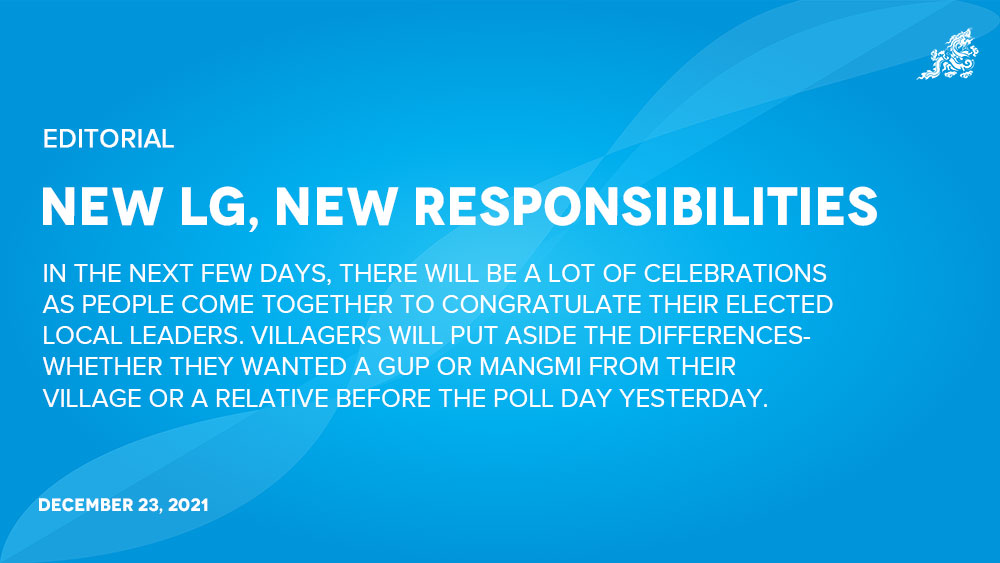In the next few days, there will be a lot of celebrations as people come together to congratulate their elected local leaders. Villagers will put aside the differences- whether they wanted a gup or mangmi from their village or a relative before the poll day yesterday.
Local government elections, going from how contestants campaign largely depends on who has the largest network or the strongest connection with the people in the villages. Not many look beyond the personality. Unlike in the parliamentary elections, the urban voters – the educated lot- depend on what their relatives or friends in the village say.
Notwithstanding how people voted, we will soon have 205 gups and his team of Mangmi and tshogpas join the office and try to live up to what they have promised to do to improve the lives and livelihood of the people.
The local government election may not be as exciting as the parliamentary elections, but it is important. It is the closest government to the people. The details of the elections will emerge soon and we will know if the third local government election was different from the past two elections. The choices were there. We had 3,514 candidates including 150 university graduates and eight candidates with master’s degrees.
Preliminary results as of last night are interesting. We have more than five female gups. If it is still a drop in the ocean, the drop is becoming bigger. We had only one in the first LG election. In Thimphu’s Chang gewog we have, for the first time, a female gup and a female mangmi. Dagala gewog gave another term for their gup who had been serving them for more than two decades.
However, it is not the qualification or the gender that matters in electing a local leader. Like a contestant said, local leaders are more important and relevant than the members of parliament to the people. It is them who can feel the pulse of the people, who the people can question and make them accountable for what happens in a gewog during their five-year term.
The results of decades of planned development are visible in the villages. Almost all the gewogs, if not villages, have basic infrastructures like roads, schools, basic health units, electricity, telecommunication including 4G facility and water.
Local leaders should look for new priorities. Some gewogs are more developed than many dzongkhags. Some are after improved road connection, stable irrigation channels and markets. There are gewogs with huge potential, say in agriculture, but cannot find a market or hands to till the land. Agriculture, even if it is still employing the highest number, is faced with a lot of problems. We tell people to return to the farms, but there is no scope in farming because we are not being able to solve basic problems like reliable water for irrigation or human-wildlife conflict.
The new batch of local leaders will have more responsibilities. Promising roads and schools are now irrelevant. Improving basic infrastructure is not enough. The demands are growing and priorities are changing. Modernising agriculture, still, the source of livelihood for the majority, linking farms to market and even reversing the rural-urban migration should be a priority.
Local governance, unfortunately, is always linked to agriculture. It should not be. With political and financial independence, they should come with new ideas and initiatives beyond agriculture. Tourism is one area. Reviving lost traditions and culture is another.
The short excitement of the recent elections should not be forgotten. Bhutanese villages, it is said, are places only for the old and poor. This should change and the mandate is on the newly elected leaders.


